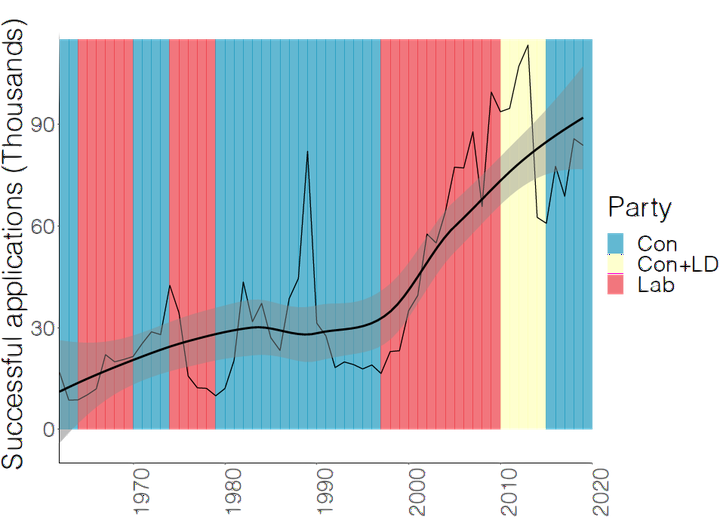Naturalisation trends in post-Brexit Britain
A new citizen profile

Abstract
With dual citizenship comes not only freedom of movement, but also the right to have a say in national politics. Since migrants are not evenly distributed geographically, the sudden surge in applications for British citizenship in the aftermath of the Brexit referendum could mean that, in certain geographic areas, the median voter profile may match the profile of an immigrant. Thus, if the new citizens become active voters, a new electoral map could emerge; one where urban constituencies become even more salient in politics, and where new political entrepreneurs will start targeting this previously unenfranchised group. Studying the political socialisation trajectories of individuals who join the electorate by naturalisation is a key component in understanding the political behaviour of social change and making better electoral predictions. The paper identifies the most prevalent socio-economic characteristics of successful applicants for British citizenship and connects them with the corresponding voting behaviour literature and administrative data in other to develop hypothesis about their political preferences and their participation in future elections.